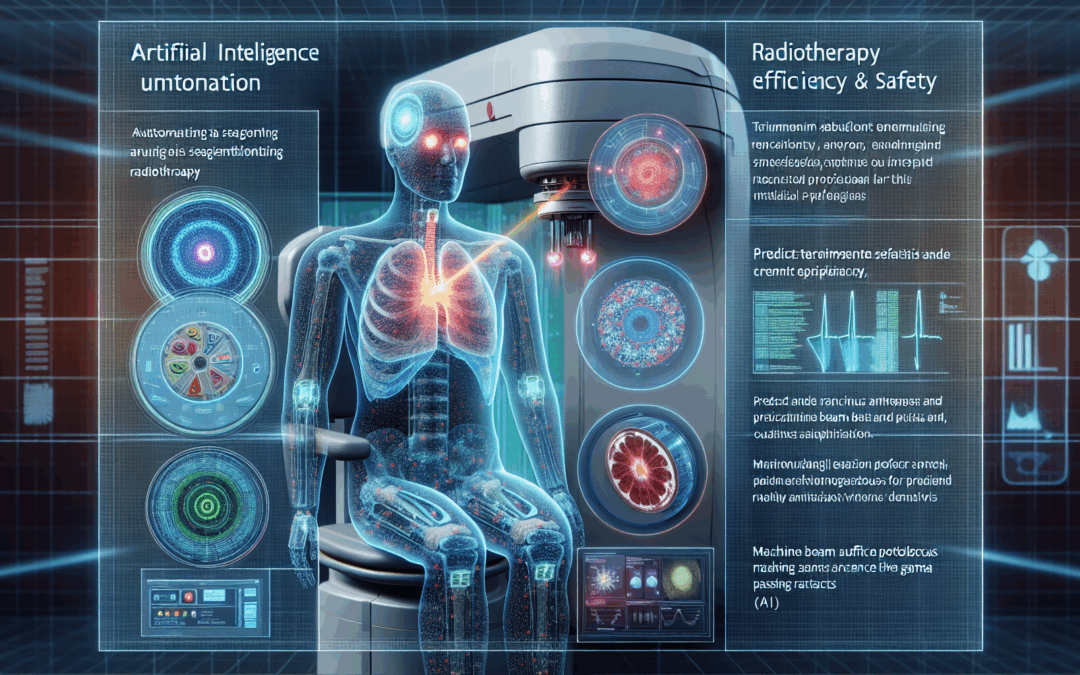Revolutionizing Cancer Care: The Role of AI in Precision Oncology’s Transformative Journey
🩺 The year 2024 has been an inspirational leap for precision oncology, with artificial intelligence taking center stage in the fight against cancer. Across the realms of diagnostics, treatment planning, and drug discovery, AI technologies are bringing tailored solutions directly into the hands of caregivers and patients, redefining pathways to health and hope.
🔍 At the heart of these advancements lies the seamless integration of genomic and clinical data powered by next-generation AI. This harmonious blend is not just a technical upgrade but a revolution that enables healthcare professionals to provide personalized diagnostic insights with unparalleled precision. By 2025, this visionary approach is expected to become a standard, driving more personalized and effective cancer treatments.
🎯 Personalized medicine is no longer just an aspiration—it is rapidly becoming a reality. AI tools are honing tumor profiling capabilities, predicting patient responses with new accuracy, and aligning specific drug treatments to individual patient needs. Such advancements promise a future where every cancer journey is treated with unique compassion and scientific precision.
💊 The drug discovery process, often seen as a time-intensive endeavor, has also received a powerful boost from AI. New drug candidates are being identified more quickly and efficiently, with carefully designed clinical trials that target the most promising innovations. The impact is a faster track to breakthrough medications that hold the potential to change lives.
⚙️ In pathology and radiology, machine learning and automation have transformed operations. By streamlining workflows, these tools have not only improved diagnostic accuracy but also reduced the burden on clinical staff, enabling a more focused and efficient healthcare experience.
📈 Patient monitoring is being revolutionized with AI-driven predictive analytics. These tools facilitate the anticipation of patient outcomes, allowing for customized follow-up protocols and timely interventions. Such precision in monitoring ensures that patients receive the care they need when it matters most.
🤔 Amidst these technological advances, ethical and regulatory considerations remain a significant focus. Navigating issues of data privacy, algorithmic transparency, and clinical accountability is imperative to ensure the responsible and fair deployment of AI systems in healthcare.
🌟 As we look towards the horizon, the transformation initiated in 2024 is set to deepen, with AI becoming an integral part of cancer care by 2025. This period of rapid evolution paves the way for a future where technology and human touch work in harmony, offering renewed hope and healing in the realm of precision oncology.
The ideas presented here are derived from the following article: https://www.liebertpub.com/doi/10.1089/aipo.2025.ed
🩺 The year 2024 has been an inspirational leap for precision oncology, with artificial intelligence taking center stage in the fight against cancer. Across the realms of diagnostics, treatment planning, and drug discovery, AI technologies are bringing tailored solutions directly into the hands of caregivers and patients, redefining pathways to health and hope.
🔍 At the heart of these advancements lies the seamless integration of genomic and clinical data powered by next-generation AI. This harmonious blend is not just a technical upgrade but a revolution that enables healthcare professionals to provide personalized diagnostic insights with unparalleled precision. By 2025, this visionary approach is expected to become a standard, driving more personalized and effective cancer treatments.
🎯 Personalized medicine is no longer just an aspiration—it is rapidly becoming a reality. AI tools are honing tumor profiling capabilities, predicting patient responses with new accuracy, and aligning specific drug treatments to individual patient needs. Such advancements promise a future where every cancer journey is treated with unique compassion and scientific precision.
💊 The drug discovery process, often seen as a time-intensive endeavor, has also received a powerful boost from AI. New drug candidates are being identified more quickly and efficiently, with carefully designed clinical trials that target the most promising innovations. The impact is a faster track to breakthrough medications that hold the potential to change lives.
⚙️ In pathology and radiology, machine learning and automation have transformed operations. By streamlining workflows, these tools have not only improved diagnostic accuracy but also reduced the burden on clinical staff, enabling a more focused and efficient healthcare experience.
📈 Patient monitoring is being revolutionized with AI-driven predictive analytics. These tools facilitate the anticipation of patient outcomes, allowing for customized follow-up protocols and timely interventions. Such precision in monitoring ensures that patients receive the care they need when it matters most.
🤔 Amidst these technological advances, ethical and regulatory considerations remain a significant focus. Navigating issues of data privacy, algorithmic transparency, and clinical accountability is imperative to ensure the responsible and fair deployment of AI systems in healthcare.
🌟 As we look towards the horizon, the transformation initiated in 2024 is set to deepen, with AI becoming an integral part of cancer care by 2025. This period of rapid evolution paves the way for a future where technology and human touch work in harmony, offering renewed hope and healing in the realm of precision oncology.
